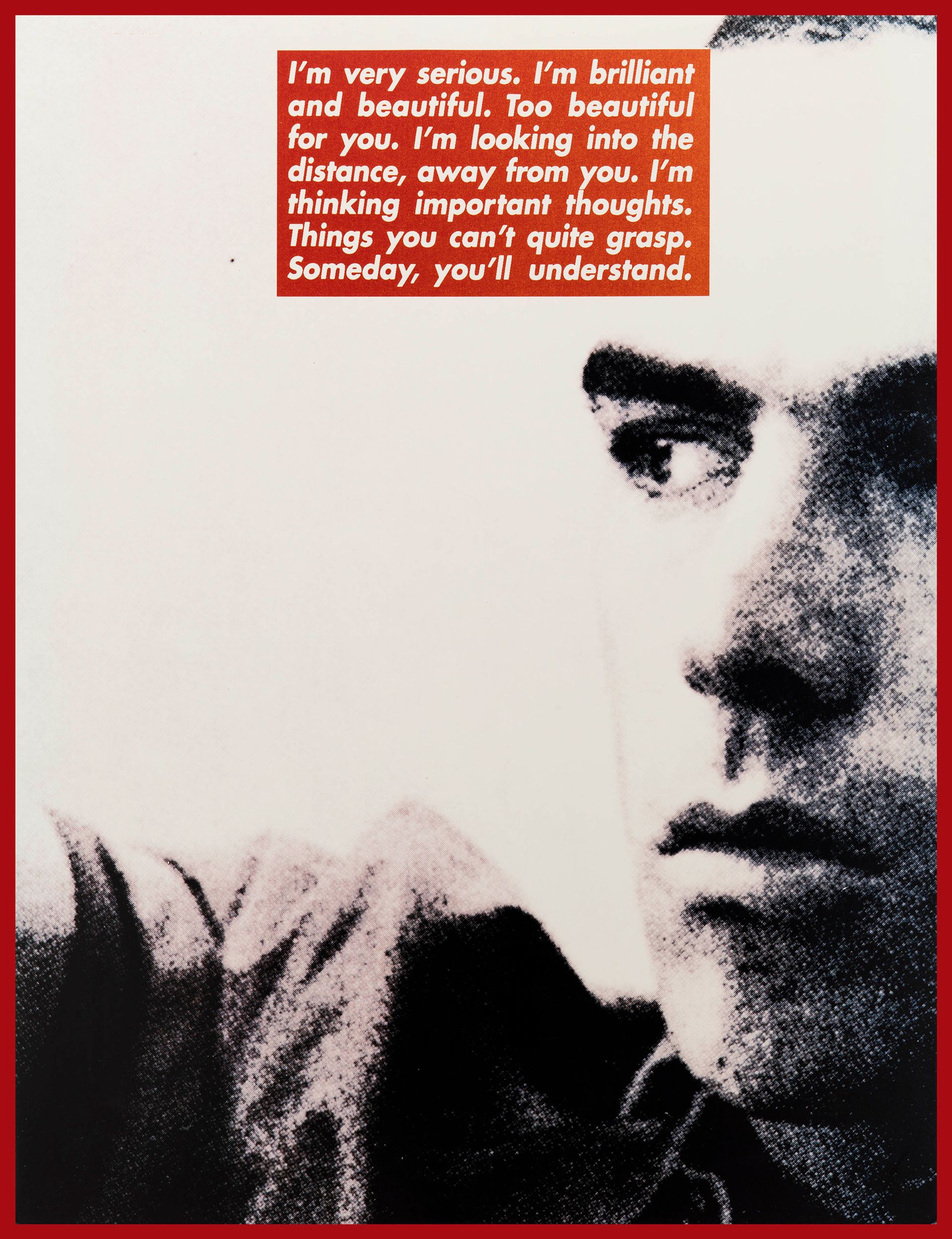Thirty years after she launched Eau de Cologne, a series of publications and exhibitions dedicated to women artists and writers, Monika Sprüth has organised her first all-female show at the Berlin gallery she runs with Philomene Magers.
The untitled exhibition opens today, 17 September (until 21 October), and features five artists who were all part of the original project: Jenny Holzer, Barbara Kruger, Louise Lawler, Cindy Sherman and Rosemarie Trockel. Works range from the 1980s to the present.

Some pieces, such as Lawler’s (Bunny) Sculpture and Painting (adjusted to fit) (1999/2015) have been repurposed for the show. Others, such as Sherman’s Untitled (2015) are mash ups of earlier works. The original prints Kruger created for a project for Dazed & Confused magazine in 1996 are a standout.
Sprüth says she often thought about doing another Eau de Cologne show, but that she simply did not have time. “However, I am quite proud,” she says, “that for some younger women artists it became a ‘cult’ and they have been very ambitious in taking up the discussion. Somehow Eau de Cologne became a synonym for a certain feminist discourse.”
First established two years after Sprüth opened her Cologne gallery in 1983, Eau de Cologne was published three times, with accompanying exhibitions, in 1985, 1987 and 1993. The aim was to bring market attention to women artists, which was woefully lacking in a city dominated by male painters in the early 1980s.
“In those days, the common discourse was ‘a good artist is a good artist’, no matter if female or male. But in reality there were many very good female artists, but no real market for them,” Sprüth says. The dealer acknowledges that the situation has “improved immensely” over the past 30 years, but there’s still a big difference between the markets for female and male artists. “It has changed, but the question of power has not really changed,” says Sprüth, who merged her gallery with Magers in 1998.
And does Sprüth hope the next 30 years will bring greater equality to women artists? “I hope there's not the need to do another show like this in 30 years time, but at the moment I want to keep up the sensibility for these questions,” she says. “The nice part of the show is, even 30 years later, it is not closing a discourse—it is opening a discussion.”

